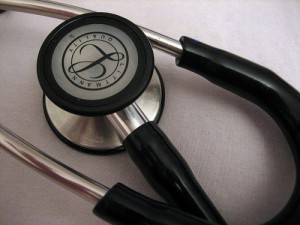 Some statistics claim that as many as three-fourths of patients experience depression after bypass surgery. A small study published in the journal “Applied Nursing Research,” found that 65 percent of the patients were depressed three weeks after surgery and 26 percent continued to be depressed by 12 weeks.
Some statistics claim that as many as three-fourths of patients experience depression after bypass surgery. A small study published in the journal “Applied Nursing Research,” found that 65 percent of the patients were depressed three weeks after surgery and 26 percent continued to be depressed by 12 weeks.
Most people are aware of the high correlation between heart surgery and depression. However, not until my recent appendix surgery did I realize that there is a risk of depression after all types of operations. For several reasons:
• the effects of anesthesia
• antibiotics and other medications in your bloodstream
• post-surgical traumatic stress syndrome
• constipation and other digestive problems from the medications
• a general disorientation
Add to that list, of course, soreness and pain, as well as orders to stay in bed for weeks (no cardiovascular activity), and you’ve got a recipe for disaster.
I also think a person can be thrown into an unexpected depressive cycle because surgery, in effect, pulls the plug on the busyness that distracts us from some of our inner pain and humanness. Recovery demands a change of scenery (the bedroom, the couch, and the reclining chair) and a definite adjustment of pace that unravels us; forced quietness can be uncomfortable in that we can’t run from the things that aren’t quite right in our life: our lopsided work-life balance, our priorities, our lack of thoughtfulness and compassion.
At least that’s true for me. On some level, I knew I couldn’t continue at the pace I was, juggling about four and half jobs, and yet I didn’t know another way. So I’m taking this time to try and figure out a schedule that allows a better work-life balance.
The day I finished my antibiotics and Percocet I thought I was out of the woods. Ironically, though, hours after my post-operation appointment—when my surgeon reported that the incision was healing nicely—I grabbed the Kleenex box and began crying (I’m a bit better now). I somewhat expected this. I mean, so many of my tools (exercise, sleep hygiene, high protein foods, social interaction, work) don’t work for the next month or so. It’s a scary place … just waiting to heal completely so that you can go back to grabbing those tools.
I’ve had to come up with a different set of instruments for myself. Among them:
• Although I can’t swim in the morning or run around the picturesque Naval Academy, I can walk two blocks to the end of my street, sit down for awhile and look out at the water, and then walk back. That feels really lame even writing that. But hey, it’s better than nothing.
• Even though I do need more rest, and can’t stick to my strict sleep hygiene plan (in bed only from 9 pm to 5 am), I am going to continue to set the alarm and get up after eight hours. Even if I just read quietly in the morning, that is better than getting in the habit of sleeping too much, which I’m learning, is as powerful as a bad diet in putting me in a bad place.
• Even though I can’t immerse myself into community work during this time, I can make every effort to get dressed after eight hours of sleep, because staying in my jammies all day tells my brain to stay shut down.
• I can’t join friends at a social hour, but I can pick up the phone and talk to one, especially when I don’t feel like it.
• I can stay connected with friends and family via Facebook.
• I can vent to sisters, friends, and to Eric. I don’t have to pretend that everything is peachy. I can call my therapist if I need to, and email my doctor.
• I can continue to help people by posting quotes on Beyond Blue and passing along jokes that make me take life less seriously.
• I might not be up to salmon and spinach, but I don’t have to drink a case of Sprite either, or eat the whole box of crackers. I can still take my Omega 3 supplements, and stay away from the sweets as best I can.
Most importantly, I am ripping up my to-do list and starting over with a miniature one.
This is not easy for me to do as a people-pleaser.
For example, yesterday, I sat down to try to write thank-you letters to all the people who had graciously sent me flowers. That totally overwhelmed me, so I crossed it off for now. I can’t keep up with my email so I put a notice up that I’m away from my desk for awhile. And because Psych Central founder and editor-in-chief John Grohol is a kind and considerate man, I am able to take a leave of absence from my responsibilities at Psych Central for a month to recover. This is big progress for me … admitting to myself that I cannot juggle all my jobs while trying to heal from major surgery … that I’m fragile, much more fragile than I’d like to be.
I hope you don’t have to have surgery anytime soon; however, if you do wake up to some stitching either on your knee, abdomen, or chest, don’t be thrown by the blues that might accompany your operation. Make your own mini-list of the small things you can do while you recover, until you can walk farther than two blocks.
Image courtesy of Image: © Andrea Morini/Getty Images
* Click here to subscribe to Beyond Blue and click here to follow Therese on Twitter and click here to join Group Beyond Blue, a depression support group. Now stop clicking.

